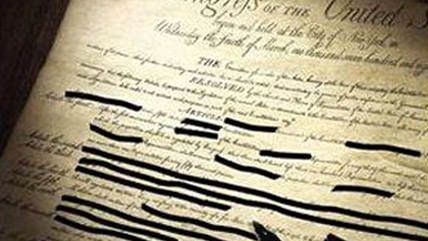Censorship in Ohio
Political speech has its day in court

Under Ohio law, it is a misdemeanor offense to make "false statements" about political candidates. Who gets to decide what counts as false? A state agency staffed by political appointees endowed with the power to selectively silence political speech.
In 2010, the conservative anti-abortion activists at Susan B. Anthony List (SBA List), were hauled before state officials on charges of violating that law. The group wanted to run billboard ads charging Rep. Steve Driehaus (D-Ohio) with supporting "tax-payer funded abortion" by voting in favor of the Patient Protection and Affordable Care Act. The state told them they couldn't.
SBA List filed suit in federal court, charging the Ohio law with violating its First Amendment rights. But the U.S. Court of Appeals for the 6th Circuit ruled in favor of the state, holding that SBA List did not have standing to file suit because it could not demonstrate "an imminent threat of future prosecution."
In June 2014, the U.S. Supreme Court unanimously overturned that decision. "The threat of future enforcement of the false statement statute is substantial," declared the majority opinion of Justice Clarence Thomas in Susan B. Anthony List v. Driehaus. Because there was no legitimate reason for "denying prompt judicial review," Thomas concluded, SBA List was granted its day in court and allowed to proceed with a constitutional challenge to the Ohio law.


Show Comments (0)